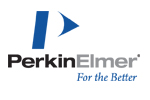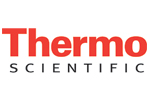|
Session: Label Free Assays |
| |
09:00 | Target Profiling of Cancer Cell Lines by Label-free Screening of Peptide and Small Molecule Libraries
Carsten Grotzinger, Group Leader/Head, Charite University Medicine Berlin, Germany
Functional screening tumor cell lines may provide valuable knowledge about biological relevance of GPCRs and other receptors in human cancer. We evaluated the utility of label-free cell-based assays in screening peptide and small-molecule libraries on cancer cell lines. |
09:30 | Cosmetic Ingredients Tantalising TRPs - Validation of Novel TRP Modulators by Impedance-based Label-free Technology
Dirk Sombroek, Scientist, BRAIN Biotechnology Research And Information Network, Germany
TRPs respond to a variety of diverse stimuli and their activation impacts on cellular physiology. Label-free impedance technology was applied to validate novel TRP modulators with high potential for cosmetic applications. |
10:00 | Innovative Label-Free Technology Solutions Improving Efficiency in Drug Discovery
Fredrick Sundberg, Director of Global Pharma Market Development, GE Healthcare, United States of America
Enabling technology solutions can impact both compound quality and overall productivity by providing more information on protein interactions. The use of innovative label-free assays can rapidly eliminate false-positive hits in screening, improve lead optimization and protein stability. |
10:30 | Coffee Break and Networking in Main Exhibition Hall |
|
Session: Fragment Based Discovery |
| |
11:15 | Fluorescence Lifetime Assays - An Attractive Addition to the Toolbox of Fragment Screening Technologies
Doris Hafenbradl, Senior Director, Biofocus, Switzerland
In this presentation we will describe novel FLT assays developed at BioFocus. |
11:45 | Fragment-informed Lead Generation to Accelerate the Hit Identification for PDE10A Inhibitors: The Synergistic Combination of a Novel Fragment Screening Approach with HTS
Stefan Geschwindner, Principal Scientist, AstraZeneca R&D Molndal, Sweden
Using an innovative and efficient fragment-screening strategy in synergistic combination with an traditional HTS approach can achieve a significant accelaration of hit identification. |
12:15 | Lunch and Networking in Main Exhibition Hall |
12:45 |  Free Workshop Free Workshop
Advancement of Separation, Purification and Crystallography from Agilent Technologies
|
13:15 | Poster Presentations |
13:30 |  Free Workshop Free Workshop
High Content Screening for Compounds and Genes Affecting Bacterial and Viral Infections
|
|
Session: Automation in Screening |
| |
14:15 |  | Keynote Presentation Automated State-of-the-Art Compound Profiling for Protease Drug Targets
Samu Melkko, Investigator, Novartis, United Kingdom
Proteases are an important class of targets for drug discovery, with several protease inhibitors in the clinic for various indications. Similar to the well-established processes used in high-throughput screening (HTS), an automated compound profiling process for proteases has been introduced enabling high quality data and short turnaround times. Optimized workflows and a modular set-up of the processes provide the flexibility needed to support the unique needs of target-class oriented drug discovery programs with tailored solutions. |
|
14:45 | More than Miniaturization: How Robust, Automated Nanoliter Liquid Handling has Altered Screening Workflows
Richard Ellson, Chief Technology Officer, Labcyte Inc, United States of America
Robust, automated nanoliter liquid handling based on acoustic dispensing was used in compound management and high-throughput screening (HTS) for many years with the initial goal of miniaturizing an existing process or assay. In many cases, this went beyond miniaturization to create new workflows and screening methods. A survey of these methods will be presented. |
15:15 | Coffee Break and Networking in Main Exhibition Hall |
16:00 | Ultra Low Volume Liquid Handling: Picoliter and Nanoliter Applications in Biosensors, Microarrays, Lab-On-A-Chip and HCS
Holger Eickhoff, Chief Executive Officer, Scienion AG, Germany
Saving precious samples and reagents are key to minimize costs in pharmaceutical screening and the development of new diagnostic tests. Handling small amounts of liquids with tiny dead volumes is a key part to achieve this. |
16:30 | Right Compound - Right Amount - Right Place - Right Time. Moving to a Sound Compound Management Process
Toby Winchester, Application Consultant, Titian Software, United Kingdom
This talk will include the processes involved in getting towards this steady state and the future steps needed to end the journey. The talk will include work on QC, investment in accurate liquid handling platforms such as acoustic systems (equipment and resource) and the essential IT integrations. The lessons learnt in this evolution and how to handle a file as large as Pfizer's. The talk will also involve Lean Six Sigma processes that got us close to this vision. |
17:00 | Mass Spectrometry Based Detection Methods for High Throughput Applications
Kerstin Thurow, Chief Executive Officer, Center for Life Science Automation, Germany
Current and future developments in faster, multidimensional runs and fully automated and computerized control for sample setup through data interpretation will be presented with examples including measurement, data analysis and automation. |
17:30 | Mass Spectrometry Based Detection Methods for High Throughput Applications
Brian Everatt, Research Investigator, Novartis, United Kingdom
This presentation outlines the concept, design and installation of the new automated system within Global Discovery Chemistry at Novartis in Horsham. It demonstrates how the working patterns of medicinal chemists are being influenced, and highlights potential future applications and developments. |
18:00 | Drinks Reception |





